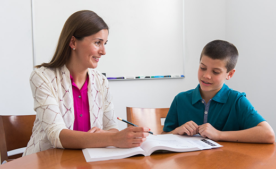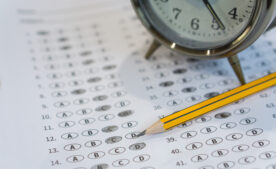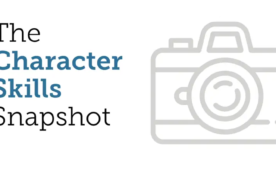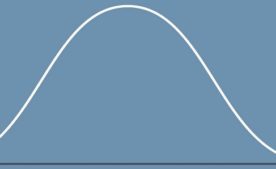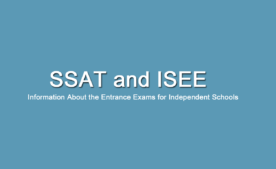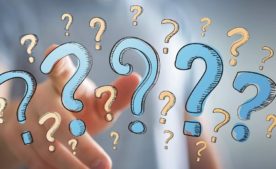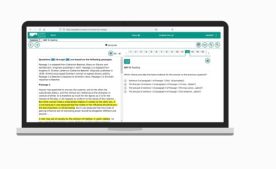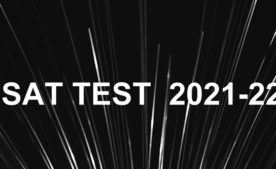Over the last decade, colleges and corporations alike have been increasingly vocal about the need for young people to be critical thinkers in order to be successful candidates for college admission and professional careers. Critical thinking develops as a student learns to read critically; however, critical reading is not a natural skill. It must be taught and practiced.
At Summit, we are focused on helping students get to the highest level of critical reading. Our tutors receive extensive training and support so they can effectively teach, coach, and model critical reading skills. Our course materials are designed carefully to support the multi-level process of learning to be a critical reader.
What is Critical Reading?
For young children, learning how to read is focused on practicing phonetics. Sounding the words out is more like translation, not reading. Actual reading skills involve digesting the information on the page. All too often, students stop receiving lessons on reading at a young age, and so their skills are limited to very basic methods of understanding only the simplest ideas in a text.
Many students think of reading as something that is relatively easy, and they expect the text to do most of the work. However, critical reading takes effort. It requires attention, with the mind processing what’s on the page and engaging with the information. It requires learners to do something with their comprehension of the material, not simply to translate the characters into words.
The skill of critical reading is analogous to having a conversation with someone. Maybe you think they’re going on and on about some topic, and your critical thinking mind seeks to answer, “Why is this interesting?” “What is their point?” “What am I supposed to be feeling?”. We’re good at this when having conversations. “This is baloney” we may think to ourselves. Understanding rhetoric and asking analytical questions is part of critical thinking. This skill needs to be turned “on” when reading.
Reading requires work. It is an active experience that uses critical thinking. When reading critically, we engage our minds in a dialog with the author and the text.
How Students Learn to Read Critically
Teaching critical reading requires a scaffolded approach, which begins after learning phonetics and basic vocabulary skills. Students must first master the skill of grouping words into phrases, then determining importance, summarizing and paraphrasing, uncovering the main idea, and, finally, understanding the function and purpose of the text.
Level 1 — Grouping
Grouping, or learning how words work together, is an important beginning reading skill. Knowledge of grammar helps with this. You know that a student has mastered grouping skills when their reading aloud becomes less staccato and more conversational. Grouping skills are very important when reading critically. You have to group to process information in a text. Our brains can only hold so much, and grouping skills make the process more efficient.
Level 2 — Determining importance
This level is a longstanding focus of school English classes. Students learn to identify the topic or theme of a passage and recognize what information in the passage is most important. Most students have a solid grasp of this level of reading.
Level 3 — Summarizing and paraphrasing
Summarizing is reducing the information into fewer words. Paraphrasing is more complex. It involves translating the information into your own words, i.e. “Describe this to a friend in your own words.” Both involve condensing. These skills are essential because our brains can retain paraphrased information better.
We find most students are at this level. At Summit, our goal is to try to get them through level 4.
Many articles in the public domain are written for 8th grade reading skills or lower. These are good practice for level 2 and 3 learning. To develop more advanced reading skills and prepare for the SAT, ACT, or AP tests, students need to be exposed to more challenging texts.
Level 4 — Determining the main idea
In school, students learn the building blocks for the essay, in which determining the main idea is more overt. In the real world, it’s not always obvious what the main idea is. It’s not always stated upfront. To determine the main idea of a text, most students need to develop new skills that build on the prior learning stages.
Our tutors help students master the skill of determining the main idea by explaining and modeling critical reading. Through modeling, tutors narrate their thought process as they are processing the information in the text. Then they coach the student to try it. With practice, feedback, and experience, students can master this skill and apply it to all of their reading, even beyond the test.
This is the minimum level at which colleges expect students to be reading. The SAT, ACT, and AP courses have college-level reading work. AP and SAT/ACT readiness require a mastery of Level 4. To excel at the tests and courses like AP Literature and AP History, students need to master Level 5.
Level 5 — Function. Purpose.
What is the paragraph doing? Is it making an argument or trying to influence you to feel a certain way? How does it relate to the paragraphs around it? This type of questioning is the basis of determining the function or purpose of a text. Inference is part of this level as well. Analyzing the craft of the text, students understand how and why the author tries to make the reader feel and think a certain way.
Level 5 is a college-level reading skill. This level of critical reading is not necessarily required for success on the SAT/ACT, but it is key for very high scores. It’s also one of the most important skills that a citizen should have—understanding rhetoric. When students can recognize how a text tries to influence them, they can look at information more objectively.
In Summit tutoring programs, we start with the passages that have very distinct main ideas then progress with more complicated ones. Our course books take students from informational texts (e.g. science articles, sports, current events) to fictional novels (learning about scene and characters) to a Level 5 understanding. Learning to read critically requires a scaffolded approach. There are no shortcuts.
Having strong critical reading skills is important to our students’ future success in college. At college, they will be expected to understand different viewpoints and make judgments based on what they’ve read. We have the privilege and honor to work with young people to develop and hone these skills.
If you’d like to learn more about our approach to tutoring or would like to help boost your student’s reading and writing skills with a one-on-one academic tutoring program, please contact one of our program directors. We are here to help.


